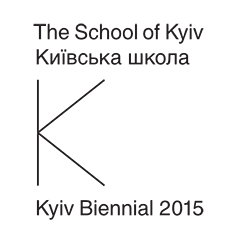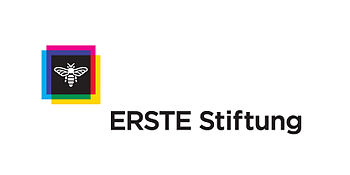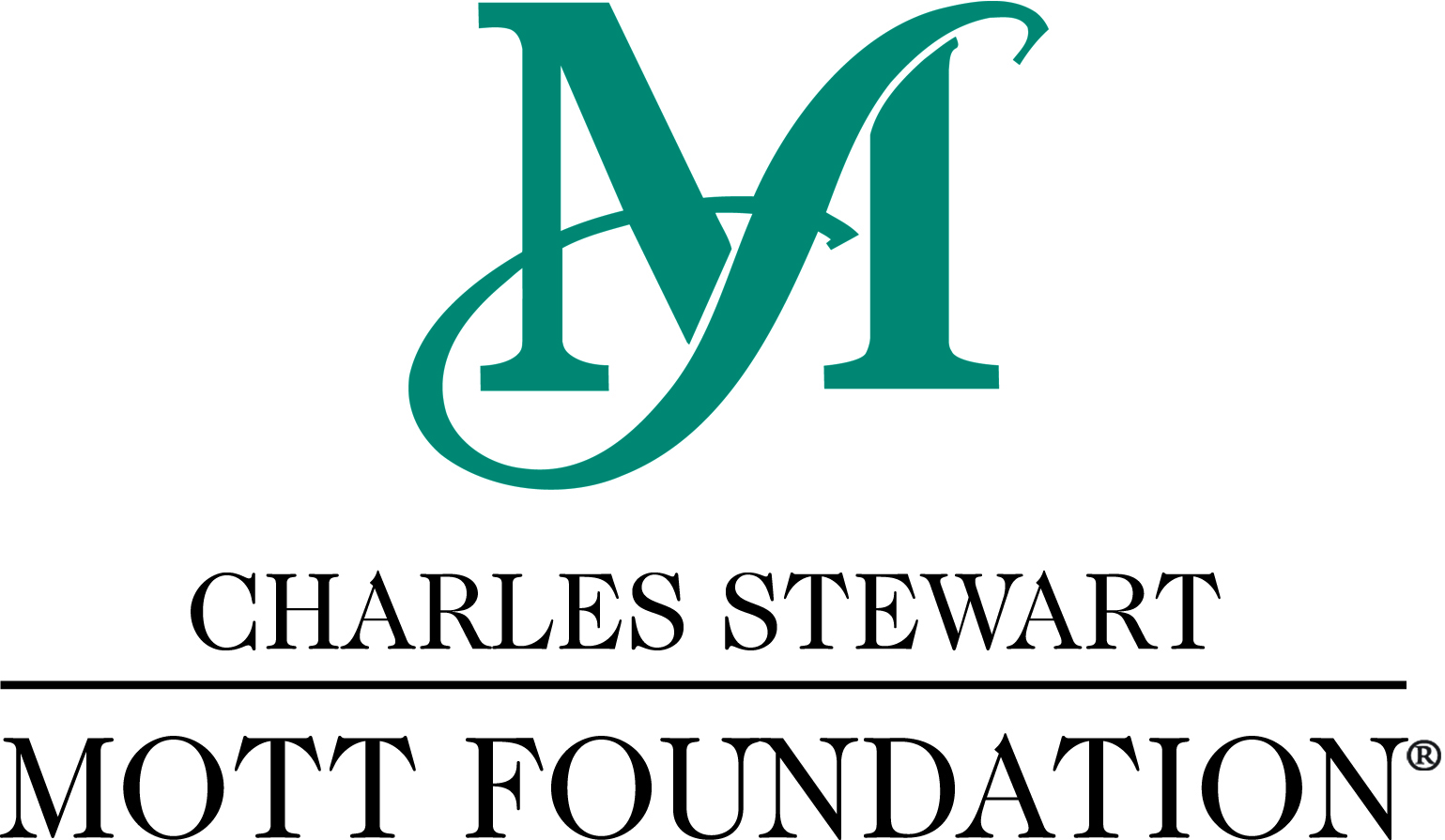Film screening. GIRL POWER
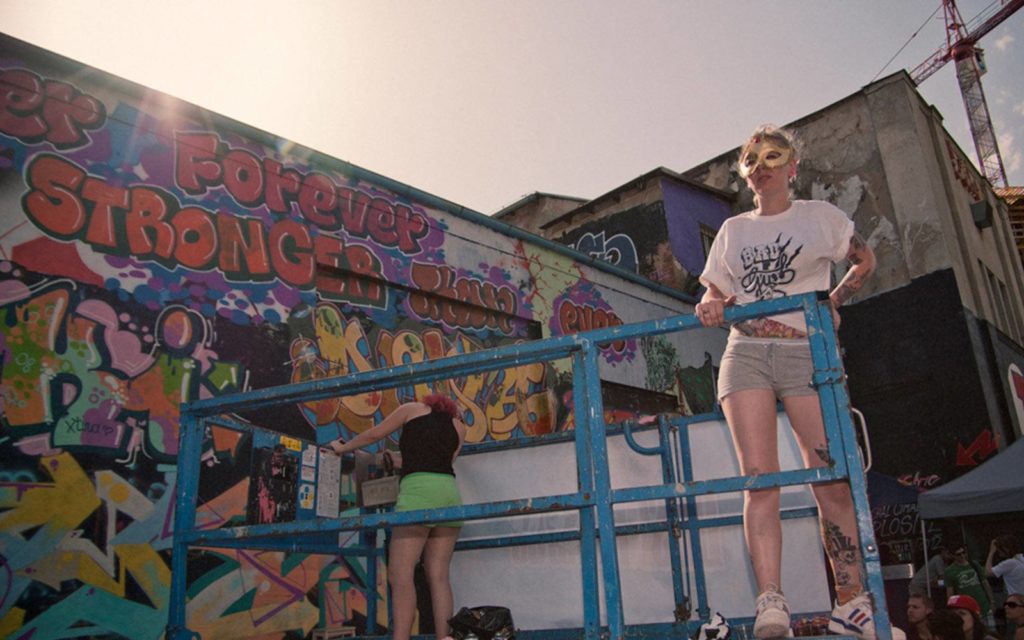
Friday, 17 March 2017, 19:00
GIRL POWER is a documentary that presents female graffiti writers from fifteen cities – from Prague to Moscow, Cape Town, Sydney, Biel, Madrid, Berlin, Toulouse, Barcelona, and all the way to New York. The graffiti community is predominantly a man’s world, and men often share the view that graffiti – namely the illegal kind – is not for girls. And yet women have become increasingly more emancipated in recent years; there are female graffiti shows, magazines, and websites. Girl Power captures the stories of ladies who have succeeded in the male graffiti world.
Trailer
Girl Power, Czech Republic, 2016, 90’
Punk Film
Directors: Sany, Jan Zajíček
Awards:
Filmový festival Finále Plzeň (2016)
The film will be shown in the original language with Ukrainian subtitles.
About directors:
Sany studied Marketing Communication. She actively participates in organizing cultural events in Prague and abroad. She has produced several big festivals. She is one of the few active graffiti writers in the Czech Republic. She has devoted herself to graffiti for 14 years.
Movie director, animator, and editor Jan Zajíček studied Animation and Direction at the Film and TV School at the Academy of Performing Arts in Prague. He has composed the music for several movies, edited documentary films and feature film trailers. He has created a broad range of animated and live action TV spots and jingles. He was one of the pioneers of the Czech graffiti scene at the beginning of the 1990s.
Admission is free
Organizer: International Festival of Film and Urbanism “86”
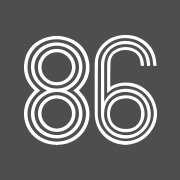
Partner: Visual Culture Research Center
Supported by: ERSTE Stiftung та Charles Stewart Mott Foundation
Presentation series and discussion Female Handwork
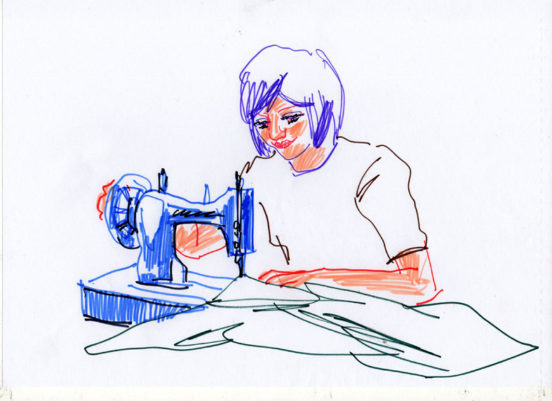
Saturday, 18 March 2017, 16:00
Female Handwork is a series of short lectures, in which the speakers will present sociological and historical aspects of female labour in mass textile production, as well as in creative individual work.
Sociologist Oksana Dutchak will present her research “Brand Clothes Made in Ukraine: Pay and Labour Conditions for Female Clothing Factories Workers.”
Historian Olha Martynyuk will talk about the tragedy at “Chernihiv Wool” enterprise and how its workers were assigned a liquidator status, in her contribution “1986 Radioactive Wool Sorters.”
Curator and gender researcher from Minsk Iryna Solomatina will tell the story of the recently unknown Belorussian folk artist with an unusual talent and biography: “‘Dyvany-Malyavanki’ by a Belorussian Artist Alyona Kish (1896(?)–1949): Between the Oblivion and Recognition.”
An artist Anna Sorokovaya in her presentation “Military Handicraft” will share the stories about different forms of textile handwork during the World War I and II, as well as in the present time.
The event will take place within the framework of the exhibition TEXTUS. Embroidery, Textile, Feminism.
Admission is free
Organizer: Visual Culture Research Center
Supported by: ERSTE Stiftung and Charles Stewart Mott Foundation
Artist talk by Uta Kilter
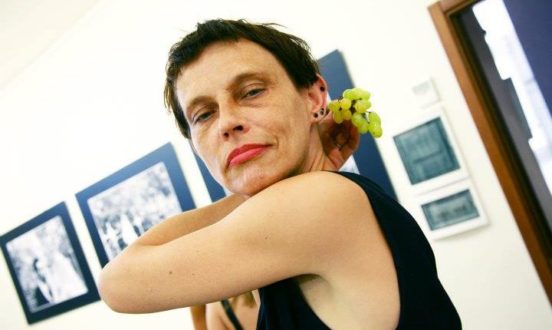
Monday, 20 March 2017, 19:00
The 1990s in “Uta Situation”
An artist, performer, researcher, and art critic, Uta Kilter has been making the “Uta Situation” TV show about contemporary art for 25 years. The weekly show included reviews of the exhibitions, taking place in Kyiv, Lviv, and most of all, in Odessa during the two decades. At the meeting Uta Kilter will present her video archive, tell about her experience in creating authorial TV show, share memories and thoughts about Ukrainian artistic process in the 1990s.
“These are the businessmen for whom the 90s were ‘stormy’, but for us, artists, they were ‘brave’. These were the glorious years! Yes! We used to work to the point of exhaustion, without sleep, without money: everything, that was made, was made in the flush of enthusiasm! We traveled a lot, brought information and shared it. It was a passage/method from Europe to Ukraine, not the other way round.”
Uta Kilter is an artist, actor, curator, art critic, journalist, and researcher. She was born in Kyiv. She studied in Kyiv Choreographic College. She is a graduate of the department of philosophy at Kyiv National Taras Shevchenko University. Since the beginning of 1990s she has been creating the “Uta Situation” TV show. She lives and works in Odessa.
Admission is free
Supported by: ERSTE Stiftung та Charles Stewart Mott Foundation
Lecture and workshop on craftivism by Sofia Tocar

Lluis Borrassa, Altarpiece of the Virgin and Saint George, 1400
Saturday, 11 March 2017, 18:00
Sunday, 12 March 2017, 15:00
Thread and needle are integral elements of civilization development, still relevant today. In the same time, textile has traditionally been considered a female work. In her book The Subversive Stitch: Embroidery and the Making of the Feminine, art historian and psychotherapist Rozsika Parker argues, that exploring the history of embroidery means exploring the history of a woman.
Saturday lecture Thread and Needle by Sofia Tocar will answer the question, why textile and female creativity are so closely related, as well as why we differentiate between “high” and “low” art. The lecturer will follow the history of textile production as art and social phenomenon in its close relation to social status of women.
Craftivism (craft+activism=craftivism) counters our traditional views on the role of male and female handicraft by pointing out that the personal can be social and embroidery can be a form of a protest, which inspires and supports those who participate. In craftivism, collectivity and solidarity are important as part of a “small protests” creation process, taking place with the help of needles, threads, and knitting needles.
Sunday workshop by Sofia Tocar will consist of an introductory theoretical part about the history and role of craftivism in social protest, as well as of practical part, too.
Sofia Tocar is a researcher, curator of a residence program for artists from Eastern Europe and Central Asia in Prague. She was born in Moldova in 1990 and has lived in Prague since 2010, where she studies at Master’s Program in art history at Charles University. She explores the use of textile in contemporary art and activism, mainly in feminist movements.
The lecture and workshop will take place within the framework of the exhibition TEXTUS. Embroidery, Textile, Feminism.
Admission is free
Organizer: Центр візуальної культури
Supported by: ERSTE Stiftung and Charles Stewart Mott Foundation
Visual Culture Research Center Reopens «The Lost Opportunity»
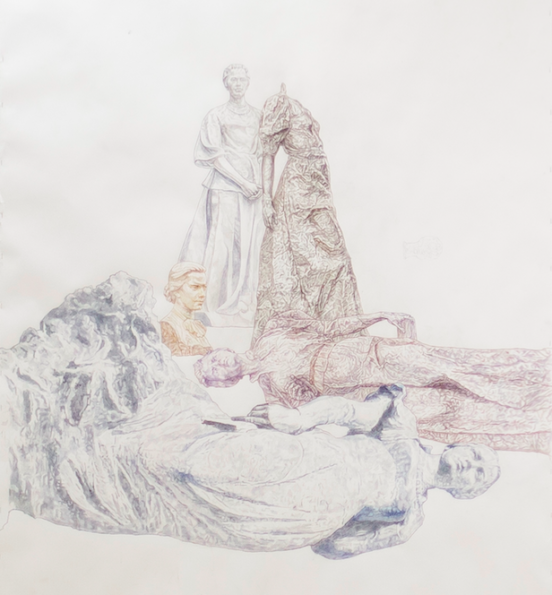
On Sunday, February 12, we are reopening «The Lost Opportunity» exhibition by Davyd Chychkan in its present condition. The exhibition space, preserved as it is after the pogrom, will serve as a ground for reflection on the situation, in which current artistic expression is now, as well as of our society in general.
The works by Davyd Chychkan are artistic images that found themselves strong in their weakness in front of the pogromists with covered faces. The interpretation of these images requires a complex assessment, a nuanced commentary, a thoughtful critique, and aesthetic sensibility. The reopened exhibition points to its return to the territory of intellectual interaction and reflection, from which it was ousted by the act of barbaric violence. It is thus the only way to discover its real political meaning.
At that, remaining on the positions of open-mindedness and enlightenment, freedom of speech and autonomy of artistic work, we suggest to look critically at the social landscape of post-Maidan and the opportunity of not losing the guidelines that were defined during Maidan. The savagery of pogrom implies the essence of «anti-Maidan»: the social darkness that cannot be allowed to occupy the Ukrainian public space.
We are reopening the exhibition with a lecture by Ukrainian lawyer and human rights advocate Ksenia Prokonova, taking place on Sunday, February 12, at 16:00. Addressing artists, cultural institutions and human rights activists, the lecture will consider potential legal actions in cases of attacks and destruction of artworks.
Ksenia Prokonova is a lawyer, Head of the Dispute Management Practice.
Focusing on war and the post-Maidan situation in Ukraine, «The Lost Opportunity» exhibition by Davyd Chichkan opened on Thursday, February 2. It poses the questions that have been in the air for more than three years: what was this event, and what it could have become? According to the author, Maidan is a lost opportunity for the Ukrainian society to accomplish a social revolution, which would mean not only to defend dignity, but rather finally gain dignified living conditions. In his series of graphic works, the artist discovers the causes and speaks about the consequences of this loss, one of which is the so-called “decommunization” – a paradoxical phenomenon which shapes the traits of counterrevolution in the context of political ignorance.
We remind that on Tuesday, February 7, at 17:40, 14 people broke into Visual Culture Research Center, inflicted injuries on the security guard, destroyed the exhibition «The Lost Opportunity» by Davyd Chychkan, and stole four artworks.
The exhibition will be open till February 26. Opening hours: Tuesday to Sunday, 14:00 to 20:00. Closed on Monday.
Admission is free.
Organized by Visual Culture Research Center
Supported by: ERSTE Stiftung and Charles Stewart Mott Foundation
“Deteined”. Screening of the film and discussion
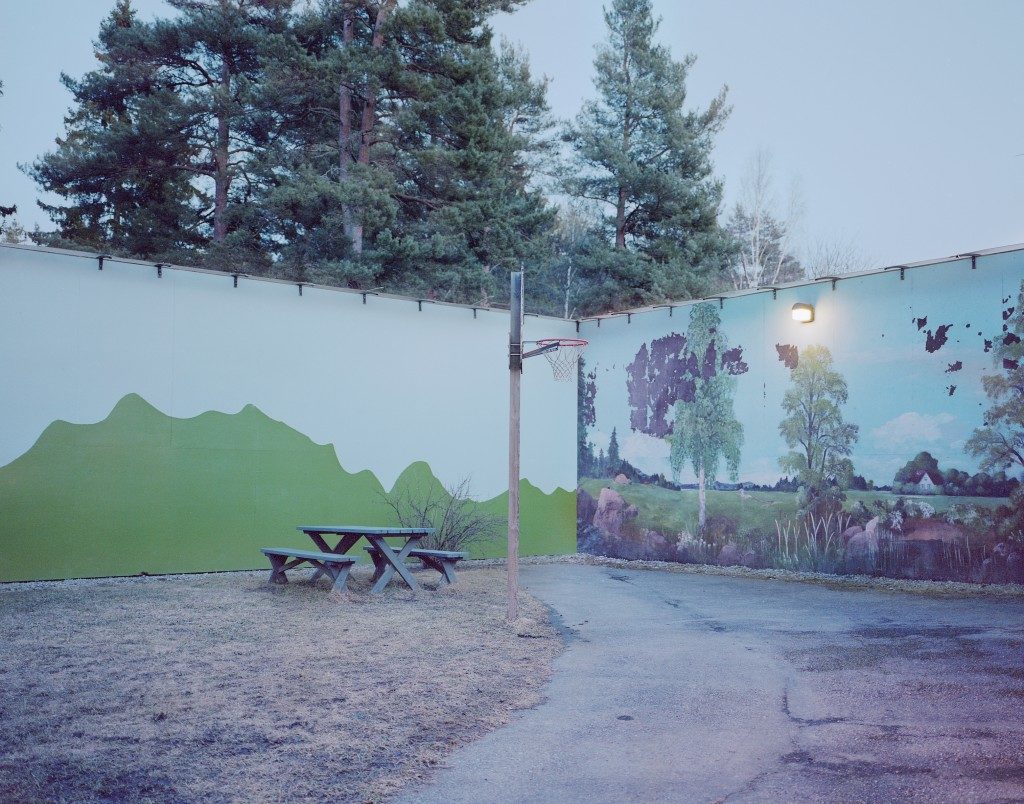
The Pogrom at Visual Culture Research Center: Right Wing Radicals Destroyed “The Lost Opportunity” exhibition by Davyd Chychkan
Video from surveillance camera inside the VCRC gallery space.
On Tuesday, February 7, at 17:40, approximately fifteen people broke into Visual Culture Research Center. They beat up the security guard, destroyed the exhibition «The Lost Opportunity» by Davyd Chychkan, stealing four artworks and heavily damaging others.
Dedicated to the war and post-Maidan situation in Ukraine, the exhibition «The Lost Opportunity» by Davyd Chychkan had opened in Visual Culture Research Center on Thursday, February 2. Threats to the artist and organizers, as well as calls to destroy the exhibition were subsequently posted on the social media pages of the far right groups and bloggers.
In order to guarantee safety of the visitors and the artist, we cancelled Davyd’s guided tour of the exhibition on Saturday, February 4 and closed it for the weekend. Despite the announced cancellation of the tour, and closed doors of the exhibition, a group of young men gathered in front of the VCRC entrance door (see photo). They severely beat up a passerby and attacked two visitors using a pepper spray. One of the visitors filed a complaint to the police. The mentioned individuals also broke and torn off the plastic sign and the advertising banner of the exhibition.
On Tuesday, February 7 the exhibition was reopened in accordance with its regular working hours. A young man was noticed observing the entrance doors to the exhibition. A member of VCRC asked whether he wanted to come in and the man answered that he would come back later. Because of his suspicious behavior and outfit that is typical for the far right subculture, the workers of Visual Culture Research Center called the police and closed the door, opening it only for each visitor.
Around 17:40 the security guard who was working at the exhibition together with the VCRC members, opened the door for three visitors to come in. About 15 people broke into the premises with their faces covered. They used a pepper-spray, encircling the security guard, threatening him, and demanding to lay on the ground. Eventually, several persons attacked the guard, punching him in the face, while the rest of the group were destroying the artworks and filming the action using their mobile phones. Trying to break into the office room, where VCRC members stayed behind closed door, yet not successfully, the group left, taking several artworks and books from the exposition.
Among the graffiti the attackers made on the walls, there is a trident (the emblem of Ukraine) that is shaped as a Celtic cross, proving that it was the neo-Nazis who carried out the attack. Until now, none of far-right groups in Ukraine or Russia claimed responsibility for the attack.
The police opened criminal investigation under Article 296 of the Criminal Code of Ukraine as “a hooligan act committed by a group of persons” that could be reclassified.
The exhibition presented ten graphic paintings by Davyd Chychkan. Four were stolen, while three were completely destroyed. Only two works survived the attack and one was slightly damaged. We preliminary estimate the losses of works at six thousand dollars. The damage of the Center (broken walls, destroyed protective shield, a broken heater, etc.) are estimated at one thousand five hundred dollars.
«The Lost Opportunity» exhibition by Davyd Chychkan, organized by the Visual Culture Research Center, is dedicated to the war and post-Maidan situation in Ukraine. «The Lost Opportunity» poses the questions that have been in the air for more than three years: what was this event and what it could have become? According to the artist, Maidan is a lost opportunity for the Ukrainian society to accomplish a social revolution, which would mean not only to defend dignity, but rather finally gain dignified living conditions. In series of graphic works Davyd was exploring the reasons and reflecting on the consequences of this loss, among which the so-called «decommunization» phenomenon that crystallizes the traits of counterrevolution in the context of political ignorance.
Exhibition by Davyd Chychkan “The Lost Opportunity”
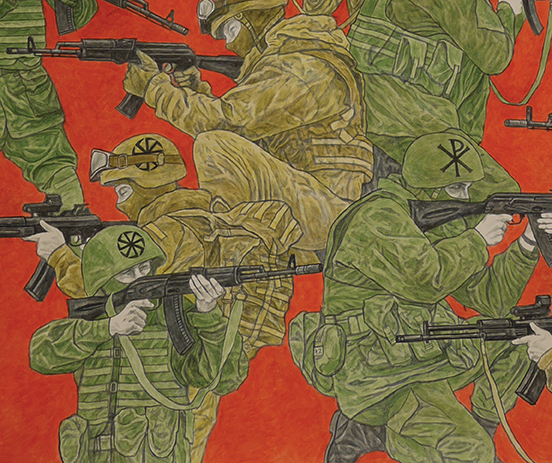
2 – 26 February 2017
Visual Culture Research Center and Political Critique invite you to the solo exhibition by Davyd Chychkan, opening on Thursday, February 2, at 19:00.
On Saturday, February 4, at 16:00 the artist will make a guided tour around the exhibition.
Focusing on war and the post-Maidan situation in Ukraine, The Lost Opportunity poses the questions that have been in the air for more than three years: what was this event, and what it could have become. According to the author, Maidan is a lost opportunity for the Ukrainian society to accomplish a social revolution, which would mean not only to defend dignity, but rather finally gain dignified living conditions.
In his graphic works, the artist unveils the causes of this loss and speaks about its consequences. One of such consequences is the “decommunization” policy – a paradoxical phenomenon, which shapes the traits of counterrevolution in the context of political ignorance. Davyd Chychkan ironically suggests to the followers of “decommunization” that they should be consistent and “decommunize” not only the Soviet heritage, but also such Ukrainian socialists as Ivan Franko, Mykhailo Drahomanov, and Lesya Ukrainka. The artist emphasizes that the lack of political culture in Ukrainian society preconditions “decommunization,” and the low level of political consciousness on the post-Soviet space facilitates the reactionary Kremlin propaganda machine.
For Davyd Chychkan, his political activism is inseparable from the artistic practice. As an anarchist, with his artistic works (from street art, to graphic series) he politicizes the discourse of contemporary Ukrainian art, turning it into an instrument for political transformation of society.
Davyd Chychkan is an artist, anarchist-communist, activist of Black Rainbow and ЛКПД (LCUD, Libertarian Club of Underground Dialectics). He lives and works in Kyiv.
Opening hours: Tue – Sun, 14:00 – 20:00. Closed on Monday.
Admission is free.
Organized by Visual Culture Research Center
Supported by: ERSTE Stiftung and Charles Stewart Mott Foundation
Lecture and workshop on Internet security
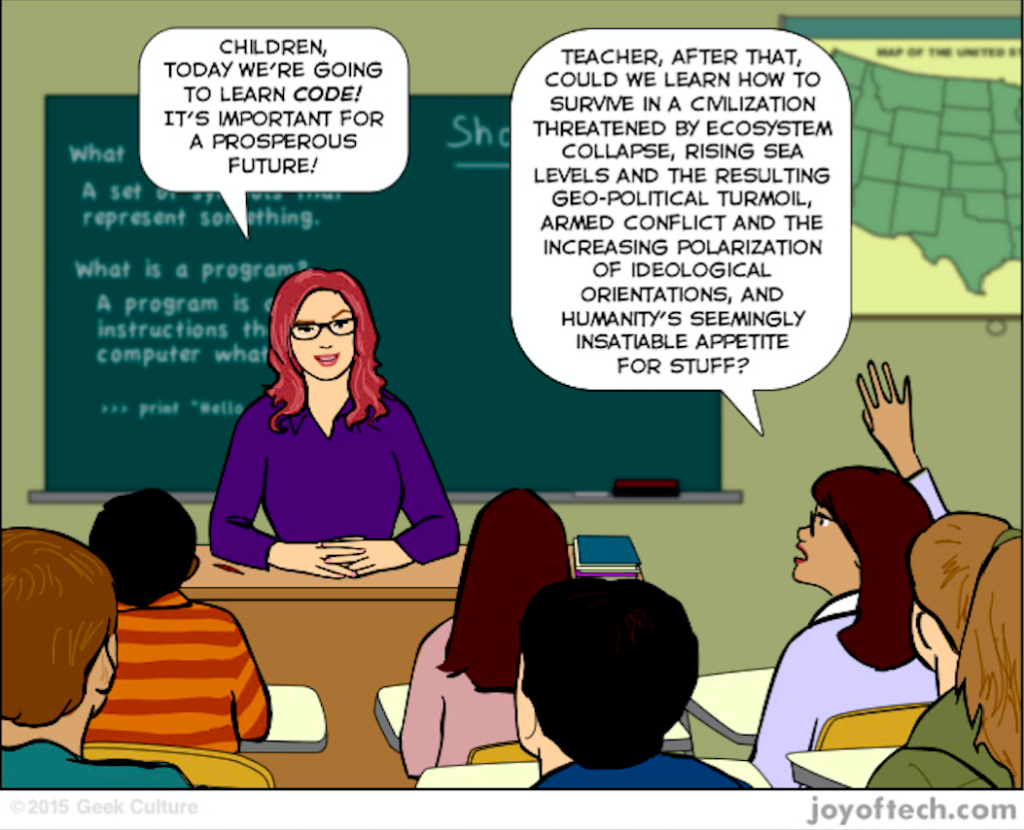
Wednesday, 25 January 2017, 19:00
Data Encryption: Delusion or Information Hygiene
Account cracking in social networks, identity thefts, “hacker” attacks and viruses, omnipresent surveillance – every Internet user today appears to be on the kind of information war “front line.” However, unlike big corporations, or security services, we usually do not own any resources to protect our online activity.
During the event Ksenia Yermoshina will talk about the latest European trends in data encryption and information security. Her lecture will be followed by a workshop, conducted by Vadym Gudyma, on the individual digital security risks assessment. We will discuss the differences between digital threats in Ukraine and Europe, correct evaluation of your own risks, and the reason why the issue of encryption is so important in public debates and expert discussions on the future development of the Internet.
Ksenia Yermoshina is specialized in civil web technologies and cryptography. She holds a PhD from École nationale supérieure des mines de Paris (Mines ParisTech), major – socio-economy of innovation. She is an organizer of TransCyberien crypto party. Her research focuses on sociology of science and technology, actor-network theory, information security, cryptography, etc.
Vadym Gudyma is a digital security coach for journalists and activists. He consults Ukrainian and international organizations on the issue of privacy protection and responsible use of the data. He is the first fellow in the field of Responsible Data and Privacy within the framework of School of Data international network.
Admission is free
Supported by ERSTE Stiftung and Charles Stewart Mott Foundation
Pre-premiere screening of the film Grey Horses by Mykola Ridnyi
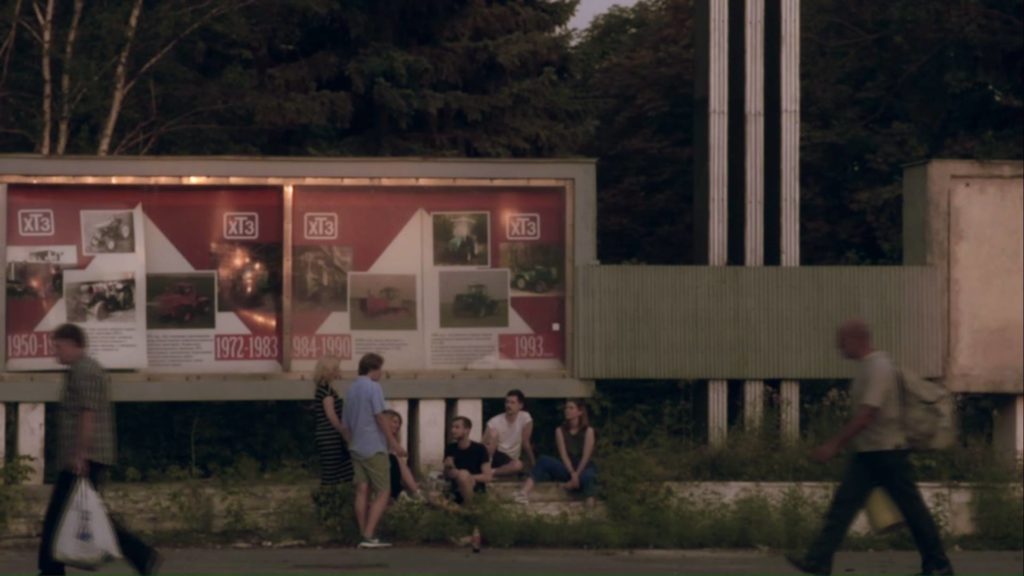
Saturday, 24 December 2016, 19:00
The film script is based on the records of interrogations and stories by the relatives of the little known Ukrainian anarchist Ivan Krupskyi – Mykola Ridnyi’s great grandfather. The film is divided into parts, devoted to the paradoxically diverse protagonist’s life periods: his leadership in a militia unit, participation in the civil war in the beginning of the 1920s, police service, and work as a construction person at the Soviet factory.
Nonfictional and staged episodes reproduce the past through the actions of today’s heroes: anarchists, police officers, students and workers. The shooting took place directly on historical sites: Poltava, Gadyach, Kharkiv and Bohodukhiv.
The film questions the processes of historical memory formation and glorification of the individual figures in accordance with the interests of contemporary politics.
Grey Horses, 44’07’, 2016
Director, screenwriter, editor, producer – Mykola Ridnyi
Cameramen: Dmytro Pashko, Pavlo Itkin, Vadym Smarchenko, Mykola Ridnyi.
Participants: Volodymyr Balash, Alisa Mordasova, Yan Gerasimov, Inna Zyablikova, Ihor Popelnyuk, Danylo Rechkovskyi, Karina Terletska, Andriy Rachynskyi and others.
Line producer – Lyuba Knorozok
Project partner – Hromadske.ua
Admission is free
Mykola Ridnyi is an artist, curator, coeditor of Prostory on-line magazine. His works were exhibited in Pinakothek der Moderne, Munich (2016), Galerie für Zeitgenössische Kunst Leipzig (2016, 2015), at the 56th Venice Biennale, The School of Kyiv – Kyiv Biennial 2015, etc. He lives and works in Kharkiv.

